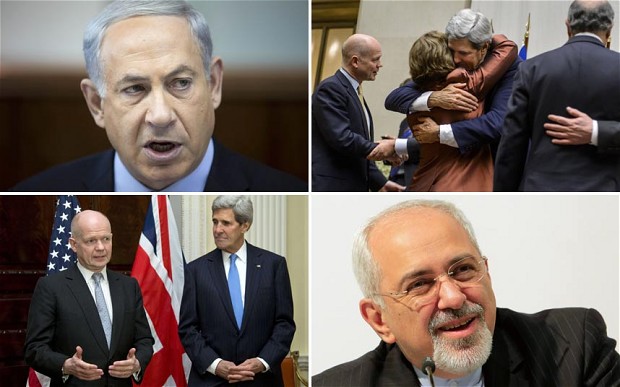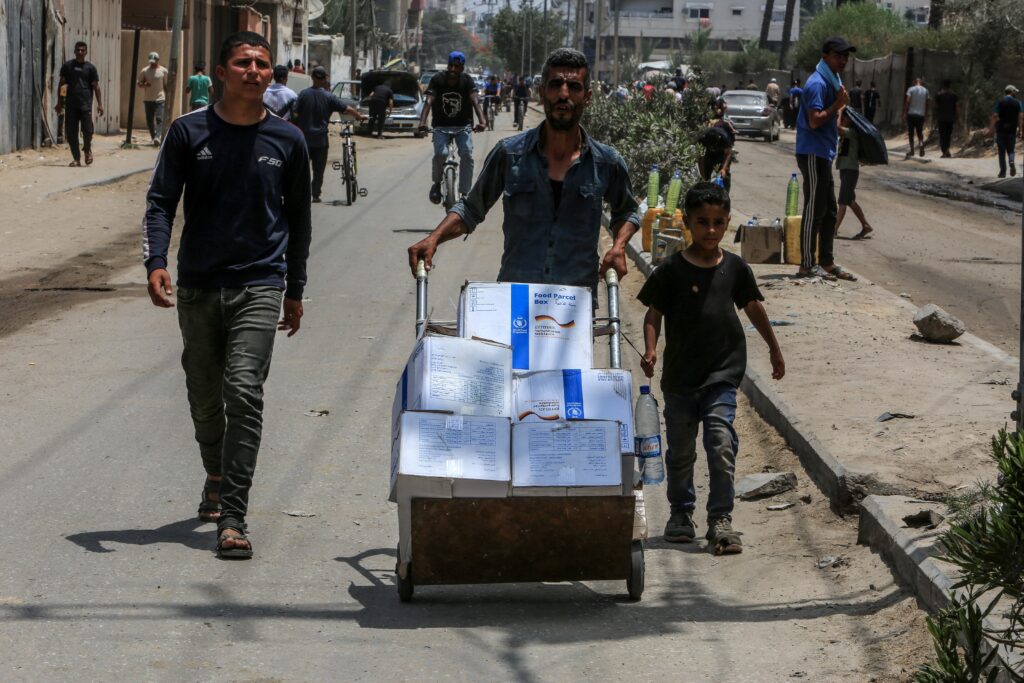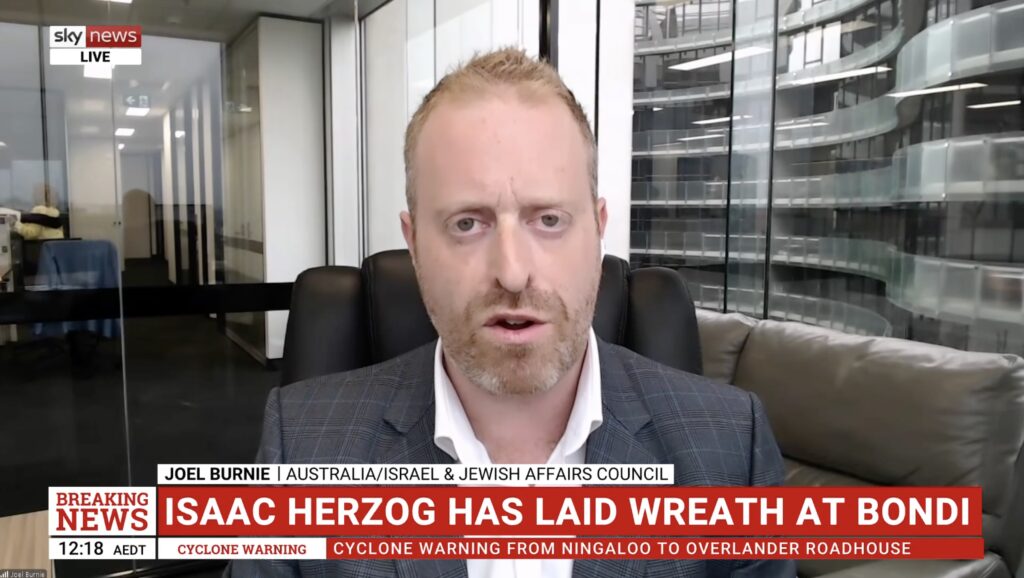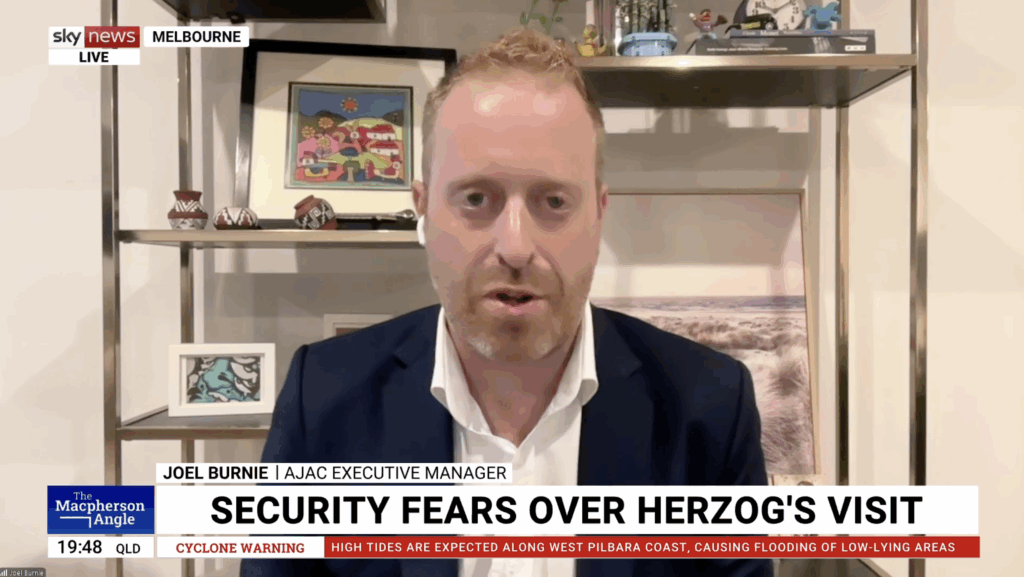IN THE MEDIA
A dangerous deal on Iran
November 27, 2013 | Colin Rubenstein

Colin Rubenstein
Australian Financial Review – Nov 27 2013
The world is overwhelmingly united in agreeing on a number of points about the decades-old Iranian nuclear crisis. One is that Iran cannot be allowed to acquire nuclear weapons capabilities, in violation of both the nuclear non-proliferation treaty and six legally-binding United Nations Security Council resolutions. Furthermore, it is agreed that a diplomatic deal with Iran is by far the most preferred way to attain this end. And thirdly, everyone agrees, in words used both by United States Secretary of State John Kerry and Israeli Prime Minister Benjamin Netanyahu, that “a bad deal is worse than no deal.”
Nonetheless, the interim deal reached in Geneva on Sunday appears to be likely to turn out to be just such a “bad deal” – or in the words of Netanyahu, a “historic mistake”
The US-led P5+1 (the US, UK, France, China, Russia and Germany) view the agreement as a way to to buy time to evaluate the sincerity of Iran’s apparent change of approach since the election of new Iranian President Hassan Rouhani in June – a temporary “freeze” on Iran’s illegal nuclear program in return for a partial lifting of sanctions and other financial incentives.
Unfortunately, it is not a genuine “freeze”, but at best a partial slowdown. Even Kerry describes the deal as merely “limiting progress” in Iran’s nuclear drive. Iran will likely end the six months of the agreement closer to a nuclear weapon than when it began.
Also unfortunately, where they already are is very close indeed. Iran already has sufficient low enriched uranium to make at least four to five bombs, and has built enough centrifuges, 19,000 in all including some new highly efficient models, to rapidly enrich this uranium to military grade. Experts at Washington’s Institute for Science and International Security estimate its current infrastructure will allow Iran to create a bomb core out of its low-enriched stockpile in under a month.
Dubious assumption
Nothing in the current deal changes that. Even making the dubious assumption that Iran will adhere scrupulously to every element of the deal, Iran can keep all its current low-enriched uranium stockpile, and currently operating centrifuges can continue to enrich.
A clause of the agreement calls for Iran to convert any low-enriched uranium it makes during the next six month to less-dangerous uranium oxide, but this is conditional on Iran having first put in place a production line to make this conversion. Since the agreement places no time limit on this, “delays” in setting this up will likely mean Iran’s enriched uranium stockpiles will continue to grow over the next six months.
Moreover, Iran can also use the time to work on other technical elements of a nuclear weapons program including weaponisation and missile delivery vehicles. While the agreement allows some increased International Atomic Energy Agency (IAEA) inspections, this does not include any undeclared nuclear sites or surprise inspections. For instance, the IAEA has long held suspicions that Iran is conducting tests of nuclear bomb triggers at the Parchin site, which they have wanted to inspect. This agreement gives them no right to do so.
Furthermore, this agreement breaks the momentum of economic pressure through sanctions that brought Iran to the negotiating table in the first place – momentum which may prove difficult to restore. The sanctions relief offered is substantial – affecting not only gold, cars and petrochemicals, but also potentially, the highly important financial sanctions through a clause that permits “associated services” for the trade that is allowed.
But even more important may be the matters of principle that have been conceded through this agreement. Iran has long claimed that they must have their legally-baseless “right to enrich” recognised, and are now insisting that this agreement includes such recognition. While the P5+1 deny this, it is indisputable that, through this agreement, they are licensing Iran to continue to violate six binding UN Security Council resolutions which are very explicit that, given Iran’s extensive nuclear cheating, Iran must not enrich any uranium until the international community is satisfied that Iran is not seeking nuclear weapons.
Chances of rollback slim
Yet the greatest danger of the current interim deal is what happens at the end of the six months. The only final deal worth having is one which genuinely achieves the only outcome compatible with international peace and non-proliferation – rollback of Iran’s nuclear infrastructure and enriched-uranium stockpiles to the point where any “breakout” to building nuclear weapons would take at least two years. But the chances of achieving this appear extremely slim.
So the obvious temptation, at the end of six months, will be to attempt to renew the interim agreement. But Iran, freed of the worst effects of the sanctions, the danger of new sanctions, and almost any credible threat of military action pinpointing their nuclear sites, will surely drive a hard bargain. And the overwhelming temptation for the P5+1 will be to offer Tehran new concessions to persuade them to agree, on the grounds that any limitations are better than nothing.
The result will probably be similar to the decade plus of negotiations with North Korea over its illegal nuclear program, with Korea constantly having to be bribed to fulfil its nuclear pledges, only to break them repeatedly so it could extract yet more concessions. And of course, Pyongyang eventually just built a nuclear weapon anyway.
Unless everyone involved exercises extraordinary vigilance about this possibility over the next months, Iran is likely to follow the same path, with catastrophic consequences for the Middle East region and for global non-proliferation efforts.
Colin Rubenstein is executive director of the Australia/Israel & Jewish Affairs Council.
http://www.afr.com/p/opinion/dangerous_deal_on_iran_m6RuqwTzg8FJygZl5l3HkI
Tags: International Security





